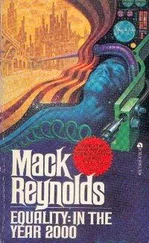1 ...6 7 8 10 11 12 ...36 “The fact that the desperate popular opposition to the consolidation of business in a few powerful hands had no effect to check it proves that there must have been a strong economical reason for it. The small capitalists, with their innumerable petty concerns, had in fact yielded the field to the great aggregations of capital, because they belonged to a day of small things and were totally incompetent to the demands of an age of steam and telegraphs and the gigantic scale of its enterprises. To restore the former order of things, even if possible, would have involved returning to the day of stagecoaches. Oppressive and intolerable as was the regime of the great consolidations of capital, even its victims, while they cursed it, were forced to admit the prodigious increase of efficiency which had been imparted to the national industries, the vast economies effected by concentration of management and unity of organization, and to confess that since the new system had taken the place of the old the wealth of the world had increased at a rate before undreamed of. To be sure this vast increase had gone chiefly to make the rich richer, increasing the gap between them and the poor; but the fact remained that, as a means merely of producing wealth, capital had been proved efficient in proportion to its consolidation. The restoration of the old system with the subdivision of capital, if it were possible, might indeed bring back a greater equality of conditions, with more individual dignity and freedom, but it would be at the price of general poverty and the arrest of material progress.
“Was there, then, no way of commanding the services of the mighty wealth-producing principle of consolidated capital without bowing down to a plutocracy like that of Carthage? As soon as men began to ask themselves these questions, they found the answer ready for them. The movement toward the conduct of business by larger and larger aggregations of capital, the tendency toward monopolies, which had been so desperately and vainly resisted, was recognized at last, in its true significance, as a process which only needed to complete its logical evolution to open a golden future to humanity.
“Early in the last century the evolution was completed by the final consolidation of the entire capital of the nation. The industry and commerce of the country, ceasing to be conducted by a set of irresponsible corporations and syndicates of private persons at their caprice and for their profit, were intrusted to a single syndicate representing the people, to be conducted in the common interest for the common profit. The nation, that is to say, organized as the one great business corporation in which all other corporations were absorbed; it became the one capitalist in the place of all other capitalists, the sole employer, the final monopoly in which all previous and lesser monopolies were swallowed up, a monopoly in the profits and economies of which all citizens shared. The epoch of trusts had ended in The Great Trust. In a word, the people of the United States concluded to assume the conduct of their own business, just as one hundred odd years before they had assumed the conduct of their own government, organizing now for industrial purposes on precisely the same grounds that they had then organized for political purposes. At last, strangely late in the world’s history, the obvious fact was perceived that no business is so essentially the public business as the industry and commerce on which the people’s livelihood depends, and that to entrust it to private persons to be managed for private profit is a folly similar in kind, though vastly greater in magnitude, to that of surrendering the functions of political government to kings and nobles to be conducted for their personal glorification.”
“Such a stupendous change as you describe,” said I, “did not, of course, take place without great bloodshed and terrible convulsions.”
“On the contrary,” replied Dr. Leete, “there was absolutely no violence. The change had been long foreseen. Public opinion had become fully ripe for it, and the whole mass of the people was behind it. There was no more possibility of opposing it by force than by argument. On the other hand the popular sentiment toward the great corporations and those identified with them had ceased to be one of bitterness, as they came to realize their necessity as a link, a transition phase, in the evolution of the true industrial system. The most violent foes of the great private monopolies were now forced to recognize how invaluable and indispensable had been their office in educating the people up to the point of assuming control of their own business. Fifty years before, the consolidation of the industries of the country under national control would have seemed a very daring experiment to the most sanguine. But by a series of object lessons, seen and studied by all men, the great corporations had taught the people an entirely new set of ideas on this subject. They had seen for many years syndicates handling revenues greater than those of states, and directing the labors of hundreds of thousands of men with an efficiency and economy unattainable in smaller operations. It had come to be recognized as an axiom that the larger the business the simpler the principles that can be applied to it; that, as the machine is truer than the hand, so the system, which in a great concern does the work of the master’s eye in a small business, turns out more accurate results. Thus it came about that, thanks to the corporations themselves, when it was proposed that the nation should assume their functions, the suggestion implied nothing which seemed impracticable even to the timid. To be sure it was a step beyond any yet taken, a broader generalization, but the very fact that the nation would be the sole corporation in the field would, it was seen, relieve the undertaking of many difficulties with which the partial monopolies had contended.”
Table of Contents
Dr. Leete ceased speaking, and I remained silent, endeavoring to form some general conception of the changes in the arrangements of society implied in the tremendous revolution which he had described.
Finally I said, “The idea of such an extension of the functions of government is, to say the least, rather overwhelming.”
“Extension!” he repeated, “where is the extension?”
“In my day,” I replied, “it was considered that the proper functions of government, strictly speaking, were limited to keeping the peace and defending the people against the public enemy, that is, to the military and police powers.”
“And, in heaven’s name, who are the public enemies?” exclaimed Dr. Leete. “Are they France, England, Germany, or hunger, cold, and nakedness? In your day governments were accustomed, on the slightest international misunderstanding, to seize upon the bodies of citizens and deliver them over by hundreds of thousands to death and mutilation, wasting their treasures the while like water; and all this oftenest for no imaginable profit to the victims. We have no wars now, and our governments no war powers, but in order to protect every citizen against hunger, cold, and nakedness, and provide for all his physical and mental needs, the function is assumed of directing his industry for a term of years. No, Mr. West, I am sure on reflection you will perceive that it was in your age, not in ours, that the extension of the functions of governments was extraordinary. Not even for the best ends would men now allow their governments such powers as were then used for the most maleficent.”
“Leaving comparisons aside,” I said, “the demagoguery and corruption of our public men would have been considered, in my day, insuperable objections to any assumption by government of the charge of the national industries. We should have thought that no arrangement could be worse than to entrust the politicians with control of the wealth-producing machinery of the country. Its material interests were quite too much the football of parties as it was.”
Читать дальше










